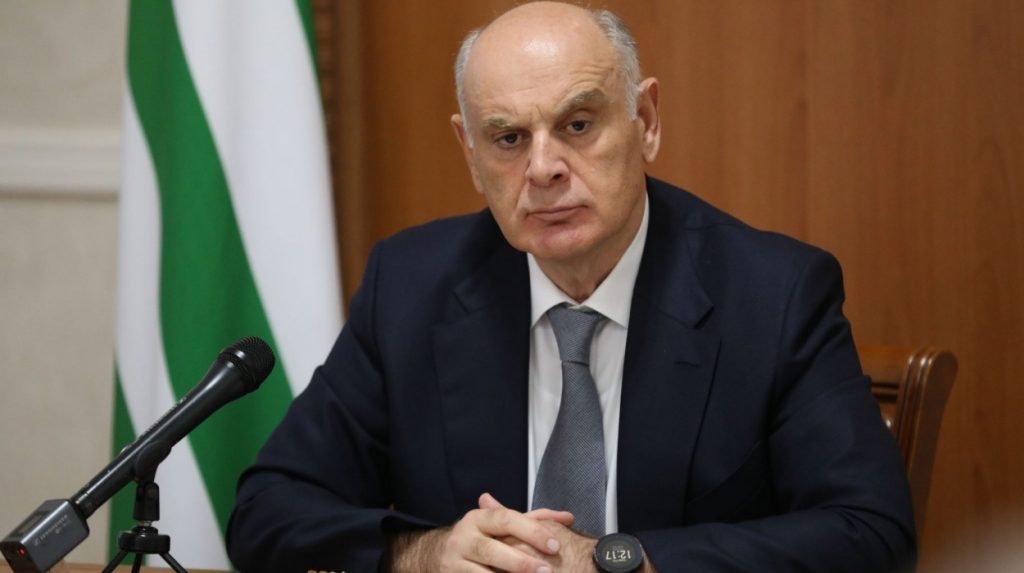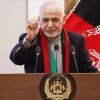Aslan Bzhania is a prominent Abkhazian politician who currently serves as the President of Abkhazia, a partially recognized republic in the South Caucasus. Bzhania’s political career has been marked by his leadership in Abkhazia’s pro-independence movement and his involvement in the region’s complex political and geopolitical landscape. He was elected president in 2020, and his leadership is focused on navigating internal political challenges while managing relations with Russia, Georgia, and other international actors.
Early Life and Background
Aslan Georgievich Bzhania was born on April 6, 1963, in Tamysh, a village in the Ochamchira District of Abkhazia, during the Soviet Union period. Not much is known publicly about his early life, but like many in Abkhazia, he was influenced by the region’s turbulent history, particularly the ethnic conflicts of the 1990s between Abkhazians and Georgians.
Bzhania is an ethnic Abkhaz and has long been involved in the political and economic spheres of the region. He pursued a career in intelligence, security, and business before rising to prominence in Abkhazia’s political scene.
Political Career
Aslan Bzhania first came into the spotlight as a political figure during the 2000s, and he quickly gained a reputation as a capable leader. He served as the head of Abkhazia’s State Security Service from 2010 to 2014. His role in national security provided him with valuable political connections and an understanding of the internal and external challenges Abkhazia faces as a disputed territory.
Presidential Campaign and Election
Bzhania ran for president of Abkhazia in 2019 but faced a significant hurdle when he fell ill under suspicious circumstances in April of that year. Bzhania claimed that he had been poisoned, and his health deteriorated severely, which forced him to withdraw from the race. This incident added to the political tension in the region, and many of his supporters believed it was a deliberate attempt to eliminate him from the political landscape.
Despite these challenges, Bzhania recovered and ran in the 2020 presidential election. He won with over 56% of the vote, succeeding Raul Khajimba, who resigned earlier in the year after protests over a disputed election result in 2019. Bzhania’s victory was seen as a shift towards reform and stabilization in Abkhazia’s often volatile political environment.
Presidency of Abkhazia
Since taking office on April 23, 2020, Aslan Bzhania has focused on addressing the economic struggles and internal divisions within Abkhazia. His presidency has been marked by efforts to strengthen Abkhazia’s independence, maintain strong relations with Russia (Abkhazia’s primary ally and economic partner), and manage the ongoing political tensions within the region.
One of Bzhania’s main challenges as president is the limited international recognition of Abkhazia. While Russia, Venezuela, Nicaragua, Nauru, and Syria recognize Abkhazia as an independent state, the majority of the international community, including the United Nations, considers it part of Georgia. Bzhania has advocated for deeper integration with Russia while maintaining Abkhazia’s political and cultural identity.
Relations with Russia
Under Bzhania’s leadership, the relationship between Abkhazia and Russia has remained strong. Russia provides significant financial aid, military support, and economic assistance to Abkhazia, and Bzhania has emphasized the importance of this partnership. However, he has also sought to ensure that Abkhazia retains a level of autonomy and does not become overly dependent on Moscow.
Bzhania has advocated for the modernization of Abkhazia’s economy, infrastructure, and public services, much of which has been possible due to Russian support. He has also worked on improving the region’s tourism industry, which is a major source of income for Abkhazia, particularly for visitors from Russia.
Challenges and Criticisms
Aslan Bzhania’s presidency has not been without challenges. The economic situation in Abkhazia remains difficult, with high levels of unemployment and limited international trade due to its unrecognized status. Corruption and political infighting have also plagued Abkhazian politics, and Bzhania has faced criticism from opposition groups that argue he has not done enough to address these issues.
Additionally, there are concerns about the influence of Russia in Abkhazian affairs. While many Abkhazians see Russia as a vital ally, others worry that the close relationship could erode Abkhazia’s independence in the long term.
Personal Life and Legacy
Bzhania is a reserved figure, and there is relatively little information available about his personal life. He is known for being a pragmatic leader with a strong commitment to Abkhazian independence and stability.
Aslan Bzhania’s legacy will likely be shaped by his ability to navigate the delicate balance between maintaining Abkhazia’s independence and ensuring its economic survival in the face of international isolation. His efforts to promote reform, combat corruption, and strengthen ties with Russia will play a critical role in shaping the future of Abkhazia.
Conclusion
Aslan Bzhania is a key political figure in the ongoing story of Abkhazia, a region whose status remains contested on the global stage. His presidency reflects the complexities of leading a partially recognized republic, balancing internal demands for reform and independence with the geopolitical realities of dependence on Russia. How Bzhania addresses these challenges will determine his lasting impact on the region’s political landscape.



